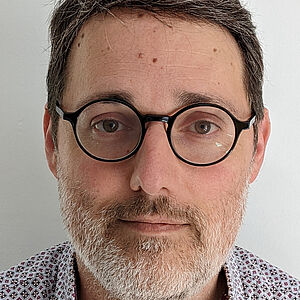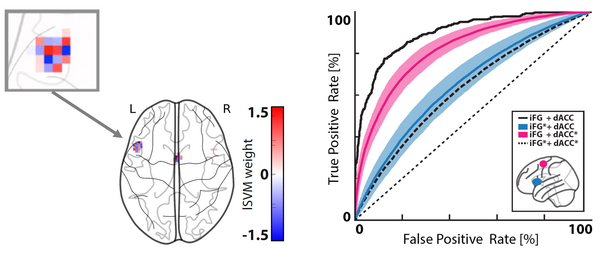
Renaud Jardri
Research Axes
As co-director of the Lille Psychiatry, Subjectivity & Inference team (LillePSI, U1172) and head of the Within-Subject Mental Representations axis, the objective of my work is to better understand and treat severe erroneous percepts and pathological beliefs, in order to relieve the most disabled patients. This project is part of the emerging field of precision psychiatry.
I am conducting my research in three main directions :
“Hallucinations capture” refers to a fMRI analysis method that allows to visualize the brain activity concomitant to hallucinatory events. Our team contributed to this field by validating a method based on a two-steps strategy: (i) a multivariate data-driven analysis of per-hallucinatory fMRI recording, and (ii) a selection of the components of interest based on a post-fMRI interview. More recently, we improved fMRI hallucinations capture through the use of Machine-Learning algorithms (Biol Psychiatry 2022). These techniques potentially take fMRI to therapeutic applications, and this project intends to test the efficacy of fMRI-guided rTMS (PHRC-N 2011 grant) and fMRI-based neurofeedback (ANR-JC 2016 grant, PEPR 2023 grant) to relieve drug-resistant hallucinations.

Left: Functional pattern of brain voxels contributing to the detection of hallucinatory episodes in fMRI.
Right: fMRI hallucination detection performance (true detections/false detections). The black curve corresponds to the validated decoder (88%). If we randomly alter the functional pattern used for this detection (blue, pink and dotted curves), the performances collapse, confirming the specificity of this pattern for hallucinatory episodes detection.
The MHASC (Multisensory Hallucinations Scale for Children) is a new category of validated mHealth application, dedicated to the complete assessment of early-onset hallucinations. Vision, hearing, touch, smell, taste… MHASC explores hallucinatory profiles in various sensory modalities. The combination of such technological advance may lead to significant benefits in the rigorous assessment of common features of hallucinatory experiences in children and adolescents. A multi-language beta version for Android or iOS devices is currently under validation.
Recent advances in theoretical neuroscience have provided new insights into information processing within large brain-like networks operating in an uncertain world. The computational framework can overcome some of the complexity within the object of study by predicting how basic changes in neural architecture may lead to systems-level changes that translate into changes in behavior. Computational models offer ways to unify basic neurochemical findings with data from more macroscopic levels and to start to apply these findings to cognitive sciences and psychiatry. We are currently developing a theory on how impaired inhibition in hierarchical neural could cause erroneous perceptions (Brain 2013, Nat Commun 2017, Schizophren Res 2022).
Validating brain-guided therapies for refractory hallucinations
e.g. neuronavigation of a repetitive transcranial magnetic stimulation treatment over brain areas measured as hyper-active during an hallucinatory episode.

International network
We are also developing original fMRI-based neurofeedback procedures. We will have the pleasure and honor to welcome Prof. Paul Allen (King's College London) on this project thanks to a WILL International Chair funding (starting in 2024, Jan.). After several years of fruitful collaboration within the International Consortium on Hallucination Research (ICHR, see my co-authorship network below), this chair should allow us to further strengthen our expertise and develop our therapeutic arsenal for the most disabled patients.





